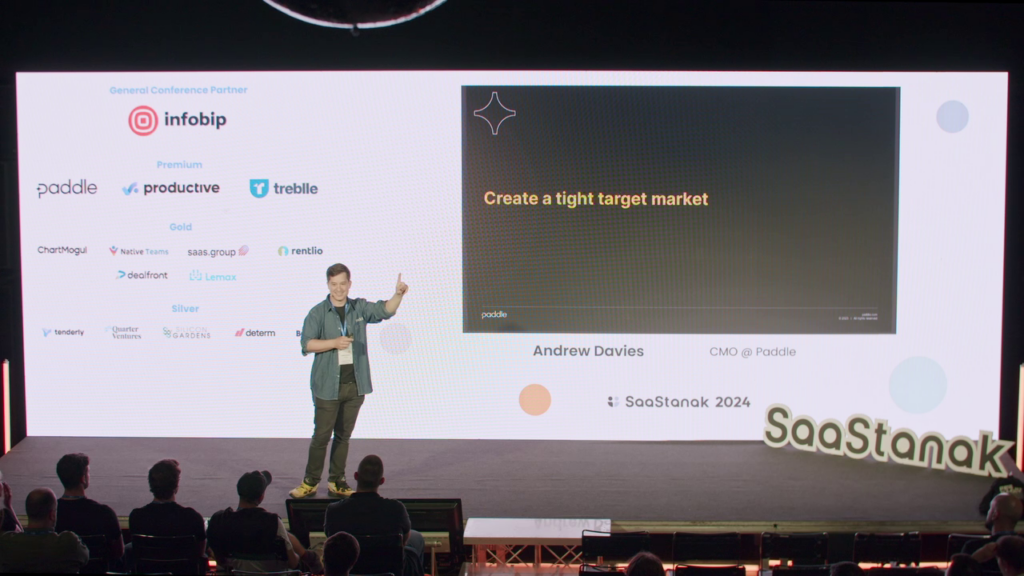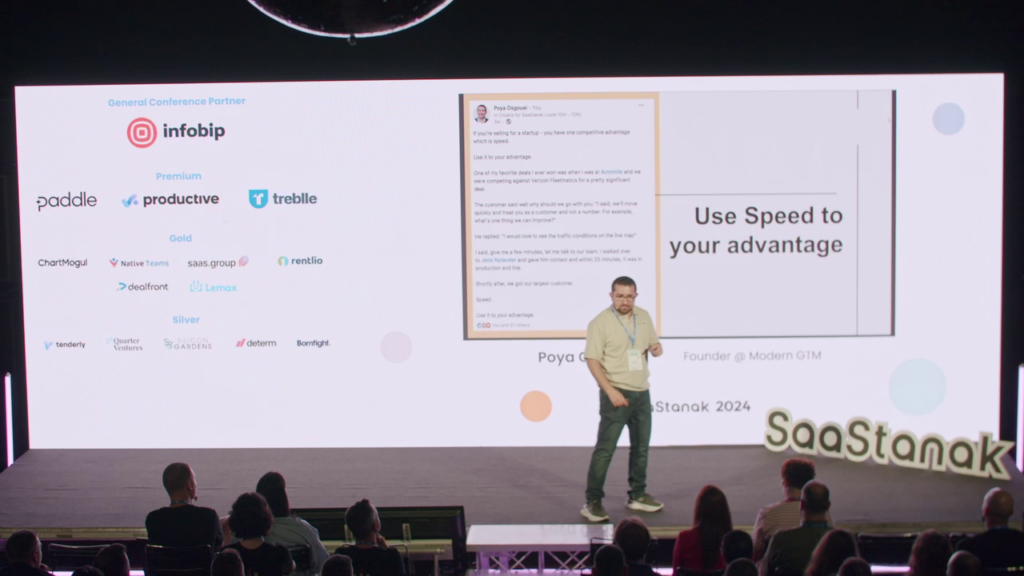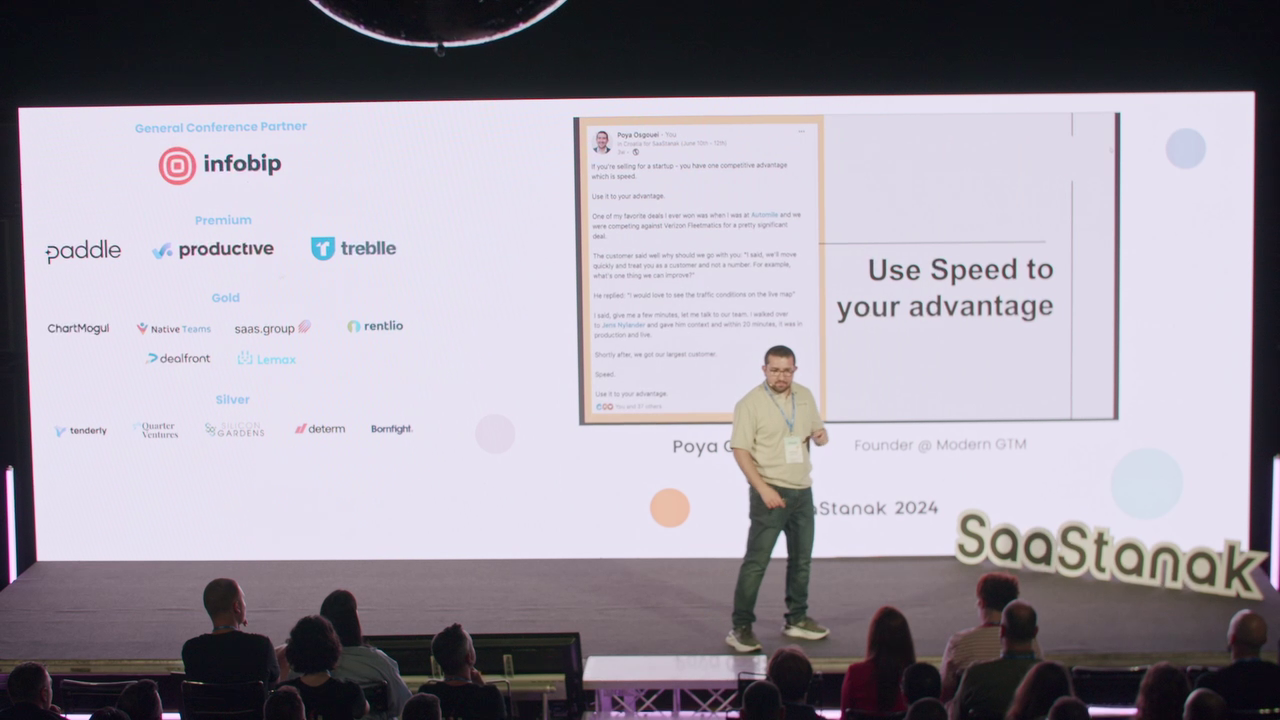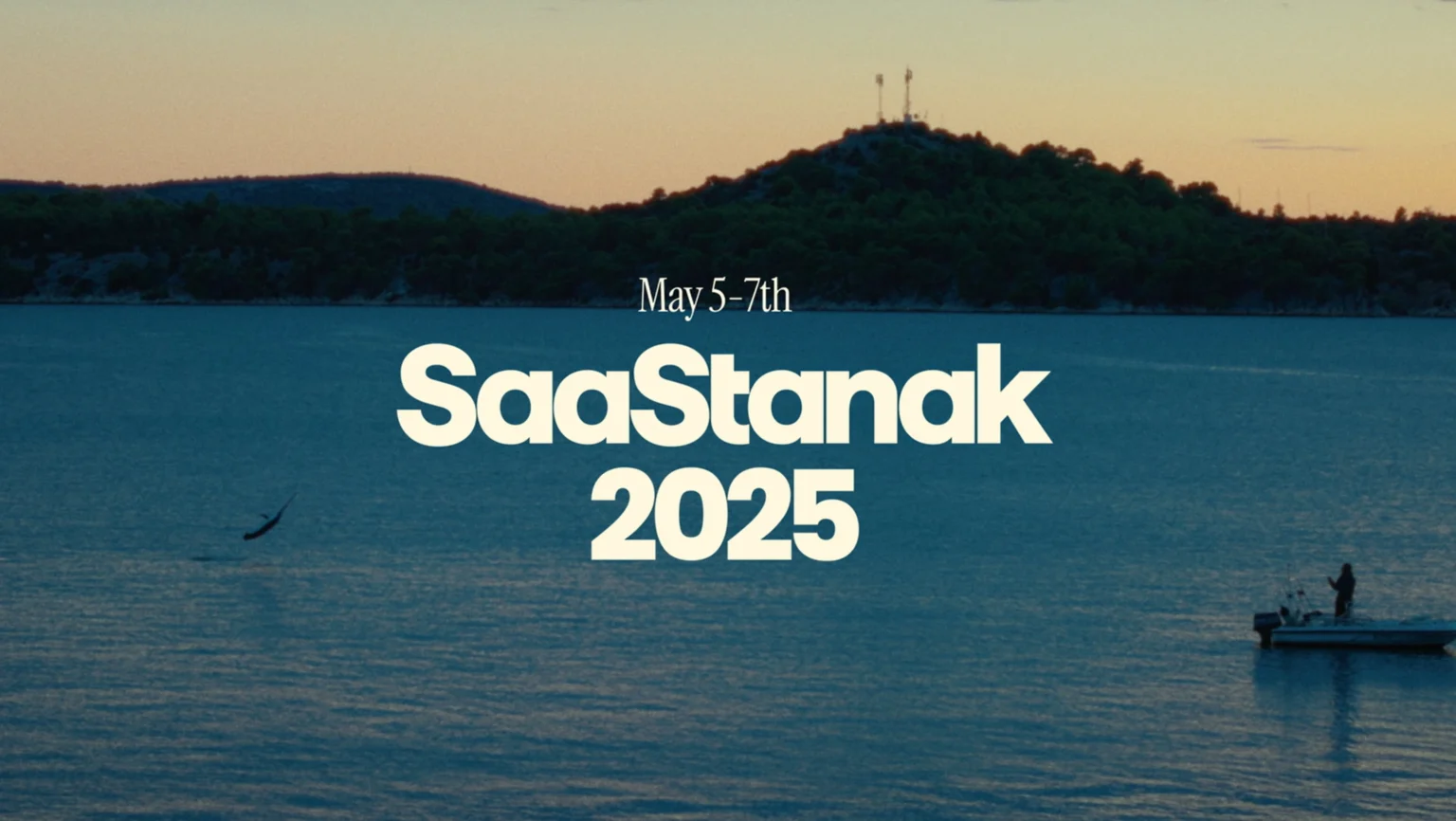If you want to build a global business – unless your local market is the US, you’re playing in the kiddie’s pool.
I hear this all the time – we’re scaling right now in Croatia, Serbia, Poland, etc. – after we reach certain revenue/funding round/etc. we’ll expand to other markets.
Although some successes started exactly like this, I don’t think it’s a feasible strategy for anyone outside of the US anymore.
I’ll name a couple reasons why:
Local market knowledge is not a moat in SaaS
It’s 2024 and every SaaS business has a competitor or two. Chances are, your product is not exactly a ‘paradigm shift’ but rather a better & refined version of something else out there. Possibly with an AI twist or better integrated with other workflows.
After the SaaStanak 2024 conference this June, I’ve had more than 20 calls with early-stage SaaS founders talking about their businesses, showing demos, and asking for help.
Most of them had the same story: “We have a couple of local customers, and we’re looking to hire a sales rep and outbound to similar customers”
My question is always – what and who exactly are you going to target? If geography is the only common denominator of your customers, you don’t know a lot about your ICP.

The most common answer is “We know how to help them and we have an advantage because we’re local”.
It’s not an advantage – it’s a cop-out, the only reason you’re going for these customers is because it’s easy – you get a referral/intro or you hyperlocalize and you can reign in until you close.
In the meantime, there’s a “local” girl or a guy working on a competitor product looking to close their first customers in the US. Might take them longer but that customer is a better reference, that SaaS has a strategy geared towards a better market and they are brand-building abroad.
What makes you think your local market will respect you when a bigger, more internationalized brand turns around and goes against your “local advantage”?
SaaS is a game of product, brand, pricing & scale. Speaking the same language doesn’t matter in the long run.
You’re wasting time
I know I’m being provocative and there’s nothing wrong with getting a bit of low-hanging fruit for starters, but you shouldn’t spend too much time on it.
It’s not that you can’t scale to millions of ARR in your local market, it can happen. Working for saas.group I’ve seen very interesting deals grown in different markets mostly bootstrapped to a couple $M of ARR by targeting only locally.
The problem is that these companies are few and far between and usually don’t involve VC, they don’t have a lot of employees & are pretty straightforward, low ACV products.
Think time tracking tools, time scheduling, task management, accountant/billing tools & mini CRMs.
What these tools share in common is that they are the most common business tools out there. Almost every business needs a billing tool, time scheduling & tracking, etc. So the potential pool of customers is large and most importantly – you can close business without a lot of sales reps – keeping the burn rate low.

And even with all of these advantages, the growth is slow & unpredictable. Large churns affect you disproportionately (because there’s a limited pool of “large” customers) and usually, customer success plays a bigger role than it should.
So you’re spending time for a special kind of ICP, one that will not repeat itself in other markets, and instead you could’ve been optimizing your brand, strategy, hiring, product, and overall goals to being a global player.
And it’s much tougher to teach an old dog new tricks. Especially a few years in, beating the same drum.
Your Sales & Marketing wins are not repeatable
As I’ve already mentioned, SaaS is a multi-faceted game and sales is one of the hardest challenges to solve. The problem with sales is that you can’t teach it, can’t learn it. You really need to be doing it instead of studying to find out what works.
And what you’re doing by targeting your local market is teaching your GTM team the wrong lessons. Your sales & marketing need to try and fail to achieve the ultimate goal of the business as opposed to hacking their way through local intros, referrals, and references.
Every sales cycle awards you with not only the potential revenue but also product & positioning knowledge for the right audience. And if you’re looking to build a global business, that audience is not reflected in your local market.
You’re also falling victim to your own success – “what works here will work somewhere else”. How about you find out what works somewhere else and then apply it here?
It’s hard to find products that succeed in the US but fail everywhere else. Plenty of opposite cases.
Play the game to its fullest extent
It’s fine to aim for a sustainable product built for the local market. It comes down to a question of what business you’re looking to run.

Just rethink your TAM and keep it close to your heart. Don’t overhire, don’t raise VC, make your presence there absolute, and forget about the rest. Find a proper moat in that market and dig in & be aware you’re growing at a slower pace and it’s fine.
But if you want to shoot for the stars, no better time than today. Ask yourself if that local logo you just closed is going to be familiar to anyone outside of your country. Make it clear to everyone that it’s a treat, not the target, and gear everything towards finding your actual ICP.
You might fail but you’re going at it to its fullest extent.
P.S.
Some of the founders from the Balkans who provide good examples of the international-first approach are Nikola Velkovski (HeyReach), Vedran Cindrić (Treblle), Marko Anastasov (Operately, SemaphoreCI) – give them a follow and meet them at some of our events:)



















